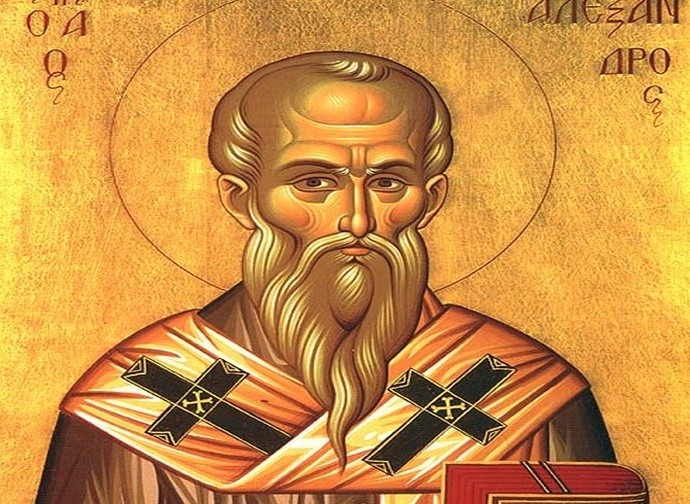Saint Alexander of Alexandria
St. Alexander of Alexandria (c. 250-326 / 328) is remembered above all for the important role he played in the conflict of the heresiarch Arius, first in the Egyptian city and then at the Council of Nicaea.

St. Alexander of Alexandria (c. 250-326 / 328) is remembered above all for the important role he played in the conflict of the heresiarch Arius, first in the Egyptian city and then at the Council of Nicaea. He was also the guide for St. Athanasius (c. 295-373) the champion of orthodoxy, who became his secretary and on his death succeeded him as patriarch of Alexandria. Alexander had been elected head of the important patriarchal see in 313, when his main contender was Arius, who had previously been assigned the oldest church in Alexandria and also thanks to this position managed to create a conspicuous community of followers.
The conflict between the two became manifest when Alexander preached the doctrine of the Triune God in a sermon, which Arius - who denied the divinity of Christ - refused to acknowledge. The heretic started to attack the saint, accusing him of having fallen into the errors of Sabellianism: he was thus able to mislead several clerics. Alexander called two assemblies of deacons and presbyters, without however being able to stem Arianism. In 320 he assembled a synod in which 36 priests and 44 deacons, including Athanasius, signed a document condemning the heresy. But Arius persevered in proclaiming his errors, making the possibility a schism a real danger. His ideas were placed under anathema during the council of the whole Egyptian Church, convened the following year by Alexander himself. Arius left Egypt but the support of Eusebius of Nicomedia, near the imperial court in the East, allowed him to spread the heresy again. Meanwhile, his followers in Alexandria began a series of violent actions.
Alexander wrote a letter addressed to all the bishops of Christianity to inform them of the spread of the Aryan movement and its dangers. Then, on the advice of Athanasius, he prepared a profession of faith, signed by about 250 Eastern pastors. In the meantime, he corresponded with Pope Sylvester and St. Macarius of Jerusalem to keep them informed. The dispute over Arianism became so serious that Constantine, although he did not understand the theological significance of the question, decided to deal with it. The emperor wrote a letter to Arius and Athanasius and then convened the first ecumenical council in history in Nicaea in 325. Alexander went there with a group including Athanasius, who acted as his spokesperson. At the council the condemnation of Arianism was reaffirmed and extended to the whole Church and the Nicene Creed was formulated.
The Council Fathers also supported Alexander in the Melezian controversy, generated by Meletius of Nicopolis, who had illegally ordained members of the clergy outside his own diocese. The saint died shortly after that fundamental council for the correct doctrine on the Holy Trinity, which he defended strenuously throughout his ministry.
